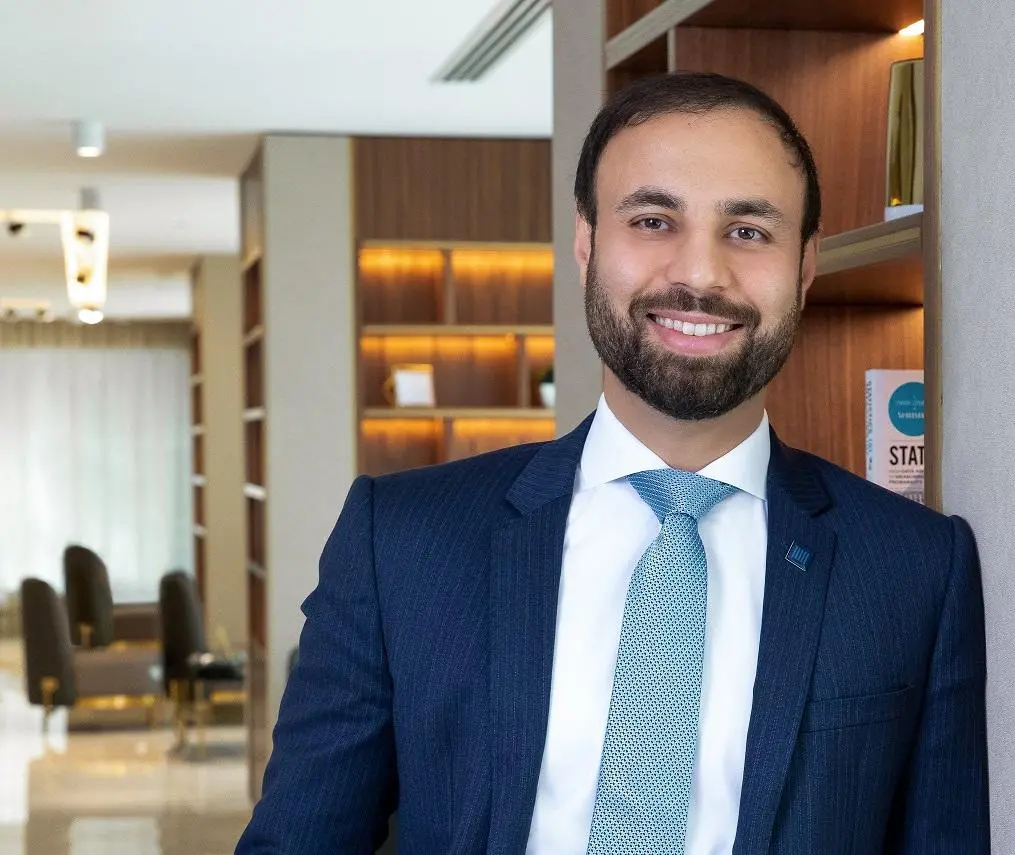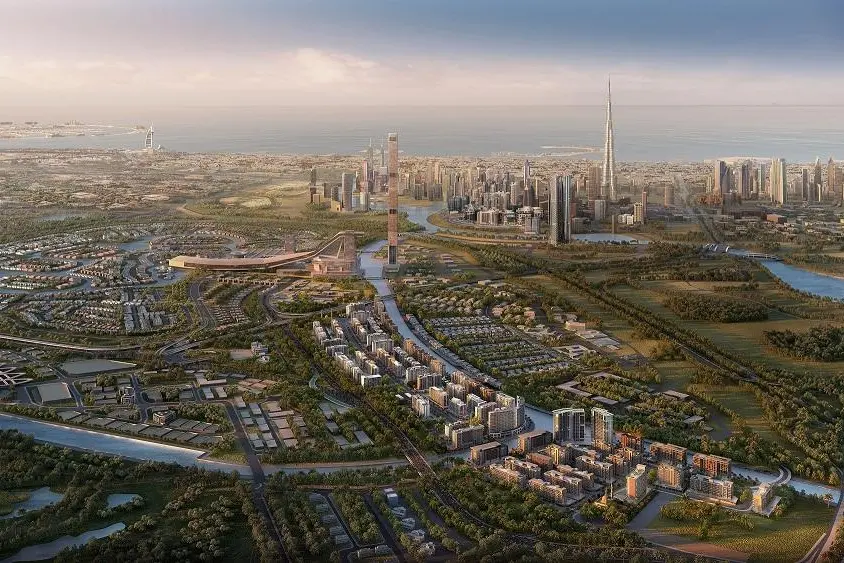PHOTO
Dubai may have been hit the hardest by the fall in property prices across the UAE, but Azizi Developments based in the emirate is forging ahead with construction projects worth AED 3.5 billion ($950 million) over the next three years.
In an interview following the announcement of the new projects, which will comprise 45 buildings and 11,000 new homes, Farhad Azizi, CEO of Azizi Developments, spoke to Zawya about several concerns, including the state of the property market and the downgrading of his company by ratings agency Fitch.
Azizi said that sales figures and demand projections were behind the decision to forge ahead. “Firstly, over 80 percent of our ongoing project inventory is sold, and most of our current projects are nearing completion, with many being over 80 percent and even 90 percent complete.”
“Since construction is progressing so rapidly and sales are growing again in a post-lockdown ramp-up, coupled with a substantial increase in sales enquiries, this indicates a pronounced uptick in demand for our world-class properties,” he continued.


Farhad Azizi, CEO of Azizi Developments.
LOCATION
The location of the projects was also a key factor in the developer’s confidence that the projects will sell, as the areas where the new buildings will be constructed, Mohammed bin Rashid (MBR) City, Dubai Healthcare City and Al Furjan, are seen as the emirate’s most sought-after locations.
Of the 45 buildings to be built, 36 are in Riviera Phases 3 and 4, MBR City, which is Azizi’s four-phase mixed-use development. Another three are in Azizi’s Avenue Buildings, also in MBR City, two are in Healthcare City, and four are in Al Furjan.
FITCH RATING
The developer saw its Fitch rating lowered to B from BB in April, but Azizi said it was to be expected in the market conditions of the time: “This was a fair assessment at the time, based on the global pandemic that unfolded and impacted the market substantially during the lockdown phase.”
“We [were selling] just around one apartment per week during the early months of the pandemic but are now selling more than 10 per day,” he said. “Before the pandemic, it was around 15 per day. Our sales in July were double those of June, and we expect another 30–40 percent increase in August. We are well on track for a pronounced post-lockdown resurgence and are developing accordingly.”
ADDRESSING OVERSUPPLY
Real-estate advisors CORE said in January that 49,000 new units would be delivered to the Dubai real-estate market in 2020. Last month, ratings agency Moody’s said Dubai’s reliance on foreign tourism and a greater imbalance than Abu Dhabi in supply and demand would mean that the emirate’s property market would be more severely impacted by the global pandemic and oil price slump than Abu Dhabi.
Azizi agrees that oversupply is a serious concern: “Developers need to stop launching projects that add no value and are similar to what is already in the market.” But he remains confident that there is demand in the areas where his company will be building in the coming years.
“In terms of oversupply, some segments have been more resilient than others,” he said. “The luxury segment, for example, is experiencing a slowdown in demand. Reports have stated that buyers are discouraged when it comes to purchasing expensive properties, which are usually priced at AED 2 million or above. Azizi Developments, however, deals in all segments and caters to various lifestyles, with our projects generally consisting of right-sized residential units that are priced correctly, investor-friendly, constructed in prime locations, and designed to foster an enriched lifestyle for all occupants.”
He acknowledged the possibility of a more pronounced price decline if efforts to create diversity in the market failed, but he also noted many factors could help stabilise real-estate sector. For example, there are few major project launches at present as developers are reducing supply in response to lower margins. Meanwhile, falls in prices have improved affordability, and bulk buyers are looking for bargains. A resurgence of Asian and Chinese investors as well as relaxed regulation regarding foreign ownership of businesses outside free zones could also help stimulate the market.
Other factors at play include increased economic activity relating to the Expo, relaxed visa rules (including long-term visas for foreign investors), the UAE Central Bank’s removal of the 20 percent cap on bank real-estate lending coupled with low interest rates, and the reduction of government fees from 5 to 2.5 percent of the annual rent of commercial establishments.
ADAPTING FOR SURVIVAL
“Downs in the market can be overcome,” Azizi remarked. “Developers need to tailor their products to evolving market needs, such as by developing investor-friendly properties in strategic locations with easy connectivity, and by focusing on the right sizes and types of properties.
Azizi Developments business model is meant to be responsive to changing times and demographics, and this may even involve halting the 720 meters Entisar tower project on Sheikh Zayed Road that was to be launched in 2020.
“We launch and develop our properties according to specific customer wants and needs, in terms of pricing, location, amenities, and overall lifestyle offered,” Azizi said. “In the current market, there is less of a demand for such a sizeable tower project, and thus we are currently focusing on mid-rise developments that are seeing significantly more investor interest. “
“Our team of experts is constantly re-evaluating our projects and will keep a close eye on the viability for the Entisar tower,” he added.
(Reporting by Imogen Lillywhite; editing by Seban Scaria)
(imogen.lillywhite@refinitiv.com)
#UAE #CONSTRUCTION #REALESTATE #BUSINESS
Disclaimer: This article is provided for informational purposes only. The content does not provide tax, legal or investment advice or opinion regarding the suitability, value or profitability of any particular security, portfolio or investment strategy. Read our full disclaimer policy here.
© ZAWYA 2020





















